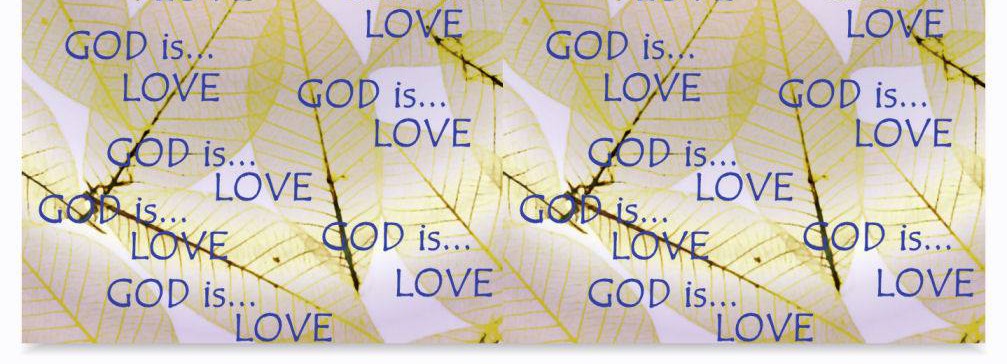The Mass readings for Sunday, April 24, 2016, are available on a single page at:
http://www.usccb.org/bible/readings/042416.cfm
With Revelation 21, we are at the final 2 chapters of the Bible. Among the amazing readings that the Church has selected for this Sunday, here at the end of Revelation, there is not destruction: rather, we see a profound renewal of all things. And there is a large, wonderful wedding about to occur.
Jerusalem, which symbolically represents the gathering of all people of all good faiths from around the beautiful globe, is dressed as a bride who descends from Heaven.
And God’s throne is mentioned. From this throne comes a voice that says, “Behold, God’s dwelling is with the human race. He will dwell with them and they will be his people . . .”
At the end of this reading from Revelation, there is this stunning verse:
“The One who sat on the throne said,
‘Behold, I make all things new’.”
How does this newness happen?
Is it the result only of God’s awesome decision to appear on earth at the end of time? Or, is it also a human operation, which God will instruct us about through the subtle teaching of the Holy Spirit?
Recall that in the great Farewell Discourse of John’s Gospel—which we hear and pray as a Church each Season of Easter—there is Jesus’ teaching about what will happen when he leaves and the Spirit arrives to us. He says that the Spirit will teach us “everything.” (John 14:26)
The Gospel Acclamation is from the same day’s Gospel:
“I give you a new commandment, says the Lord:
Love one another as I have loved you.”
This day’s Gospel is also from the Farewell Discourse of John.
(It’s interesting that John’s Gospel is the only one of the four Gospels not to have a literal Institution of the Eucharist. Perhaps it occurs verbally and symbolically throughout the entire Gospel, especially the Farewell Discourse, which appears in roughly the place of the Last Supper in the other Gospels—however, in John, the final meeting, conversation, walk, and prayer of Jesus with his disciples span 5 chapters, from 13 – 17. Although this is right before the death of Jesus, he is teaching his disciples, and us, about what life will be like when the Holy Spirit comes to us. Perhaps this has already begun again in a special way with Vatican II, which Pope St. John XXIII said would be a New Pentecost, i.e., a new birth of the Church, and a new immediacy of relationship with the Holy Spirit.)
In the Gospel, Jesus speaks of the great closeness between the First and Second Persons of the Trinity.
Then he calls us children.
He tells us to love one another.
He wants others to see the love we have for humanity.
He says, “This is how all will know that you are my disciples,
If you have love for one another.”
This brings us from the Gospel back to the beginning, to the first reading, from the Acts of the Apostles.
Paul and Barnabas have just proclaimed the Good News (Greek “Evangelion”), the Gospel, and they made many disciples.
They teach and strengthen people.
The reading from Acts ends with this observation:
“God opened a door of faith to the Gentiles.”
How do we participate in this opening of the door of faith today?
The Gospel has told us: We should love each other.
In the early Church, as Acts depicts, they do this in many ways as they spread the Gospel and found Churches.
Is there more to this?
Might God be more active, hiddenly, in this ministry of the early Church? The early missionary activity of the Church was positively drenched with the presence and guidance of the Holy Spirit . . .
Let’s conclude with the Psalm:
The first line of Sunday’s responsorial Psalm is:
“The Lord is gracious and merciful.”
This description of God is deep, and it appears several times throughout the Psalter (Book of Psalms).
Why is this pair of words, “gracious and merciful,” together so often in describing God?
This particular word for “merciful” is cognate with the word for “womb.” In Hebrew, these words are “chanun ve-rachum.”
In Psalm 111, these words describe God, as is the case in many Psalms. However, in the next Psalm, 112, something amazing happens: these same words, “gracious and merciful,” are used to describe virtuous human persons!
What is happening here?
God wants God own qualities, energies, and capacities, to enter humanity. Recall that the reading from Revelation says that God wants to dwell with us. This happens in a subtle yet powerful way when people act in divine ways, when we love and help each other, when we demonstrate graciousness and mercy, when we imitate, and thereby begin to participate in, God’s own love. God’s own being. Which is what God wants.
As we do this, God may send us even more of God’s own love and assistance, especially through the Holy Spirit. But this is clearly a win-win situation. For God is gracious and merciful.
………………………………………………..
For extra study:
We can look at these descriptions of God, in parallel placements, near the beginning and end of the Psalter:
Psalm 5 “My King and my God.” (5:3)
Psalm 145 “My God and my King.” (145:1)
Then we can consider these descriptions of Jesus at the end of Chapter 1 and Chapter 20, from the shocked Nathanael (Chapter 1) and the shocked Thomas (Chapter 20).
“You are the Son of God, you are the King of Israel.” (John 1:49)
“My Lord and my God.” (John 20:28)
Similar to Psalms 5 and 145, these are near the beginning and end of John’s Gospel. Before Chapter 21 was added later, the 4th Gospel once ended with Chapter 20, and the words of Thomas (the Greek name “Thomas” is related to the Hebrew “Ta’am,” meaning “twin”) were almost the final words of the book. We are all closer than twins. We are encouraged to live as a loving global family. God is love.
